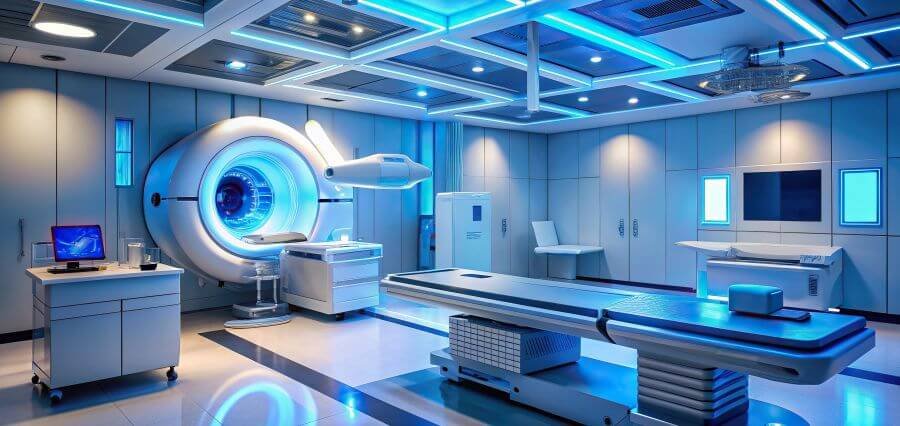According to research presented at 2024 Society of Nuclear Medicine and Molecular Imaging Annual Meeting, an AI approach has been developed which can accurately detect six different types of cancer on whole body PET/CT scans. By automatically quantifying the tumor burden, the new tool can be used for predicting response to the treatment given, estimating survival and for assessing the patient’s risk.
Kevin H. Leung, PhD, research associate at Johns Hopkins University School of Medicine in Baltimore, Maryland quoted “Automatic detection and characterization of cancer are important clinical needs to enable early treatment. Most AI models that aim to detect cancer are built on small to moderately sized datasets that usually encompass a single malignancy and / or radiotracer.”
In the study conducted by the researchers, data was collected from 611 FDG PET/CT scans of patients with lung cancer, melanoma, lymphoma, head and neck cancer, and breast cancer, as well as 408 PSMA PET/CT scans of prostate cancer patients. Researchers have also developed a new deep learning approach for fully automated, whole-body tumor segmentation and prognosis on PET/CT scans.
To predict cancer of all types, AI approach automatically extracted radiomic features and whole-body imaging measures from the predicted tumor segmentations to quantify molecular tumor burden. To build predictive models to demonstrate prognostic value for risk stratification, survival estimation, and prediction of treatment response in patients with cancer.
Leung further noted “In addition to performing cancer prognosis, the approach provides a framework that will help improve patient outcomes and survival by identifying robust predictive biomarkers, characterizing tumor subtypes, and enabling the early detection and treatment of cancer.” The approach will also provide further necessary guidelines in the early management of patients with advanced, end-stage disease by identifying appropriate treatment regimens and predicting response to therapies, such as radio-pharmaceutical therapy.”
He further added that in the future generalization, fully automated AI tools will play a major role in imaging centers by assisting physicians in interpreting PET/CT scans of patients with cancer. Further with the advancement of AI it may also lead to the discovery of important molecular insights about the underlying biological processes that may be currently understudied in large-scale patient populations.
Read More: Click Here




